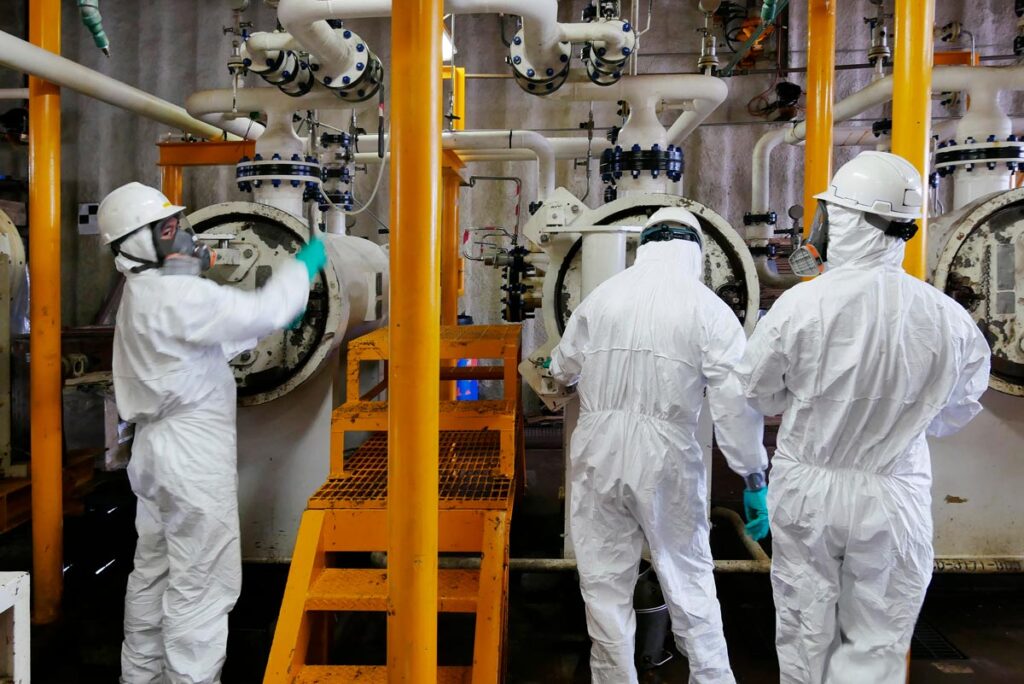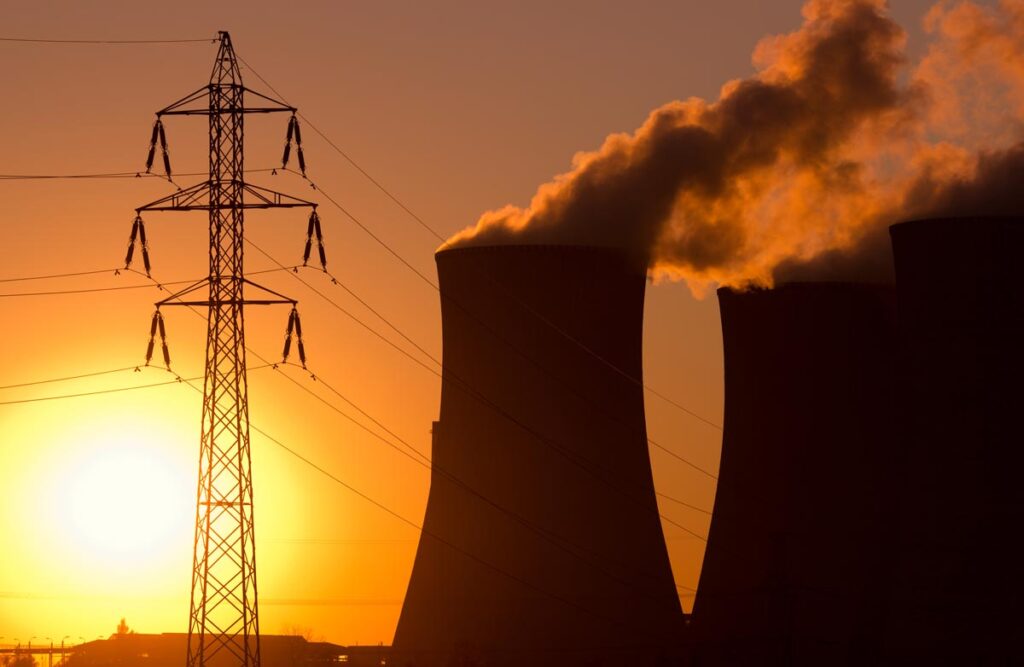
The Nuclear Regulatory Commission (NRC), a cornerstone of the United States federal nuclear regulatory framework, plays a pivotal role in overseeing the safety and security of the nuclear industry. From the bustling operations of nuclear power plants generating electric power to the careful management of radioactive material, the NRC’s regulations touch every facet of nuclear energy.
Tasked with a mission that balances promoting nuclear technology and ensuring public safety, the NRC’s work is fundamental to protecting public health and the environment while supporting the nation’s pursuit of clean energy.
Historical Background of the NRC
The genesis of the federal Nuclear Regulatory Commission (NRC) marks a critical pivot in the history of nuclear regulation in the United States. Originating from the Atomic Energy Commission (AEC), established in 1946 to foster and regulate peacetime uses of atomic energy, the landscape of nuclear oversight transformed with the Energy Reorganization Act of 1974.
This landmark legislation birthed the NRC, shifting the focus from promoting nuclear power to prioritizing reactor safety, protecting public health, and ensuring environmental preservation. This transition underscored a national commitment to harnessing nuclear energy’s benefits while safeguarding against its risks.
The Regulatory Framework of the NRC
The regulatory framework established by the Nuclear Regulatory Commission (NRC) sets the gold standard for nuclear safety and oversight. Encompassing a wide array of regulations, the NRC’s purview includes:
- Reactor Licensing: A critical function, ensuring only facilities meeting stringent safety and security standards can operate.
- Operation of Nuclear Power Plants: Guidelines and rules governing the daily workings of nuclear facilities to maintain safety and efficiency.
- Handling of Radioactive Material: Standards for the safe management and disposal of radioactive waste, mitigating potential impacts on public health and the environment.
These regulations form the backbone of the NRC’s efforts to oversee the nuclear industry, from the design and construction of nuclear reactors to their decommissioning.
The Role of the NRC in Reactor Safety
Reactor safety stands at the forefront of the NRC’s responsibilities. The commission’s rigorous reactor licensing process is a testament to its commitment to safety:
- Licensing Criteria: To operate, nuclear facilities must demonstrate adherence to comprehensive safety standards, from reactor design to emergency preparedness.
- Inspections and Assessments: The NRC conducts regular inspections and safety assessments of nuclear reactors, ensuring ongoing compliance with regulatory standards.
Through these measures, the NRC regulates nuclear reactor safety, ensuring that nuclear power plants operate within the bounds of strict safety guidelines to protect the public and the environment.
The NRC’s Commitment to Public Health and Environmental Protection
The NRC’s mandate extends beyond the mere operation of nuclear facilities; it encompasses a deep-rooted commitment to public health and environmental stewardship:
- Protecting Public Health: The NRC implements measures to protect individuals from the potential hazards of radiation and radioactive material. Through rigorous regulation and oversight, the NRC ensures that the benefits of nuclear energy are realized without compromising human health.
- Protecting the Environment: Environmental protection is integral to the NRC’s mission. The commission enforces regulations that minimize nuclear facilities’ impact on the surrounding ecosystem, ensuring that operations are sustainable and that radioactive waste is managed responsibly.
By upholding these commitments, the NRC plays an essential role in promoting the safe, secure, and environmentally responsible use of nuclear energy. Through its comprehensive regulatory framework and dedication to reactor safety, the commission safeguards the health of both the public and the planet, underscoring the importance of meticulous oversight in the realm of nuclear power.
NRC’s Role in Promoting the Common Defense and Security

The US Nuclear Regulatory Commission regulations not only ensure the safe operation of nuclear facilities but also play a critical role in upholding national security. By enforcing strict regulations under the guidance of the Energy Reorganization Act of 1974, the NRC’s mandate extends to:
- Securing Power Reactors: Implementing robust security measures around power reactors to prevent unauthorized access and protect sensitive information.
- Safeguarding Radioactive Material: The NRC regulates the handling and transport of radioactive material, ensuring it is kept secure from potential threats.
Through these efforts, the NRC promotes common defense and security, ensuring that the benefits of nuclear energy do not become vulnerabilities.
Challenges and Controversies Faced by the NRC
Despite its critical role, the NRC has faced its share of challenges and controversies, particularly concerning safety issues and regulatory effectiveness:
- Public Concerns Over Safety: Incidents at nuclear facilities have raised questions about the sufficiency of NRC regulations and their enforcement.
- Adapting to Modern Threats: The evolving nature of threats, including cyber-attacks on nuclear infrastructure, presents ongoing challenges for the NRC.
Addressing these issues head-on, the NRC continuously works to adapt its regulations and oversight practices to meet current and future challenges.
The Future of the NRC and Nuclear Safety
Looking forward, the NRC is poised to continue evolving in its pivotal role in ensuring nuclear safety and security. Key areas of focus include:
- Enhancing Regulations: The NRC is committed to refining its regulations to address emerging safety issues and incorporate the latest technological advancements.
- Promoting Innovation: As new types of nuclear reactors and technologies emerge, the NRC will play a vital role in ensuring they meet stringent safety and security standards.
The future of the NRC involves a delicate balance between facilitating the development of nuclear energy and maintaining an uncompromising stance on safety and security.
The Bottom Line
The Nuclear Regulatory Commission stands as a cornerstone of the nuclear industry in the United States, tasked with a complex but crucial mission. From ensuring the safety of nuclear power plants to protecting public health and the environment, and promoting common defense and security, the NRC’s responsibilities are vast and vital.
As it navigates the challenges and controversies that have come its way, the NRC’s commitment to adapting its regulations and oversight practices is evident. Looking ahead, the NRC’s role in overseeing the safe, secure, and responsible use of nuclear energy will undoubtedly remain indispensable.
As we move into an era where the balance between advancing nuclear technology and maintaining rigorous safety standards becomes even more critical, the NRC’s dedication to upholding its mission promises to guide the path forward, ensuring that nuclear energy continues to be a safe, reliable, and valuable part of the United States’ energy landscape.
